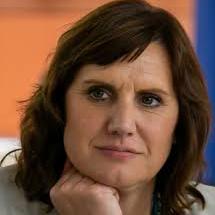
Europe is a community, a community of people, with a shared and inter-connected cultural heritage, that has volunteers and volunteering at its heart.
For many people, “Brussels” and the EU are simply Institutions and buildings; politicians; bureaucrats; laws & legislation. It is important to recognise however that Europe is in fact not about these things, but about people. Europe is a community, a community of people, with a shared and inter-connected cultural heritage, that has volunteers and volunteering at its heart. It is a community based on solidarity and respect, compassion for others, and above all, a shared hope that, when we are all able to play our part, Europe can become the inclusive and tolerant society with equal opportunities for all that we strive for.
Not since the European Year of Volunteering (EYV2011) has there has been such a large focus on active citizenship, solidarity and volunteering at the EU level as can be seen now in 2018. This year sees the start of another European Year - that of Cultural Heritage and the formal start of the new European Solidarity Corps programme.
Through volunteering, people contribute their time and expertise to respond to community need. In doing so, it is not just material needs of the community that are met, but, as a direct result of the increased social bonds that volunteering in a common spirit for a common cause creates, we also take a huge step forward towards greater freedom and unity for all. The cultural heritage of Europe is defined by the inter-relations between people and our ways of life, languages, food, artistic expression, design and innovation. Volunteers not only play a key and integral role in contributing with crucial support for the physical expressions of those elements, but perhaps even more importantly, they provide a change-making example to others through their solidarity actions.
These voluntary acts of kindness, by huge numbers of European citizens, not only change and save lives and protect physical reminders of our cultural past, and contribute to current and future cultural expression and understanding. They have also change the attitudes of others with regards to how they view and treat fellow citizens in their communities, particularly newcomers, or people with a different background. This reflects and restores the intrinsic sense of solidarity and respect for human rights that is the real basis of Europe, an aspect, that although policymakers sometimes neglect, volunteers demonstrate every day through their commitment and engagement. Volunteers are a living example of our cultural heritage and a living example of the sort of community we hope to build in Europe. 2018 will play an important part in showcasing across Europe, how volunteering in a properly supported policy framework can make a huge contribution to this shared ambition for a culturally diverse, but also a culturally inclusive and united Europe, bound together by a sense of solidarity and interconnectedness with one another.
Cultural projects promote intercultural dialogue, human rights, solidarity and social values and contribute to promoting, protecting and developing Europe’s cultural heritage. It must be ensured however that the engagement of volunteers brings real added value to a culturally-focused initiative, rather than being simply a cost cutting measure for a cultural institution such as a museum, or a cultural event such as a theatre production or music festival. It must also be ensured that the intrinsic value of volunteering for the common good be maintained even when personal interests, self-interest or gain might be the main motivating factor for a volunteer in the cultural field such as the reward of free tickets or opportunity to be involved in a production of a style and topic they are personally passionate about.



Add new comment